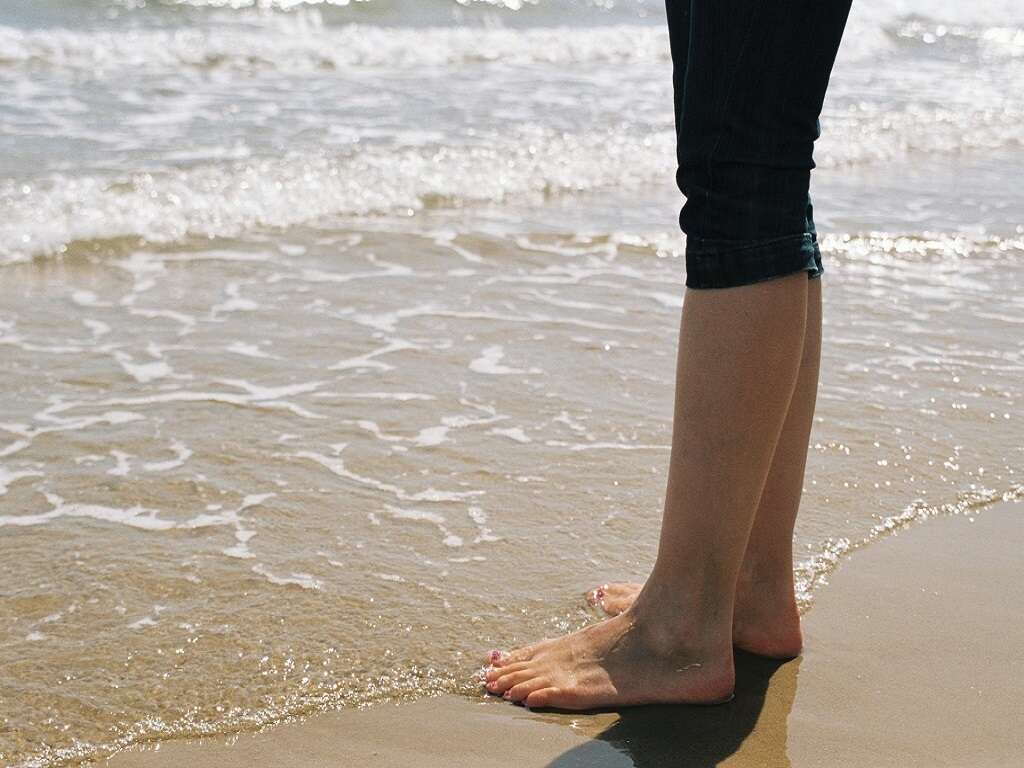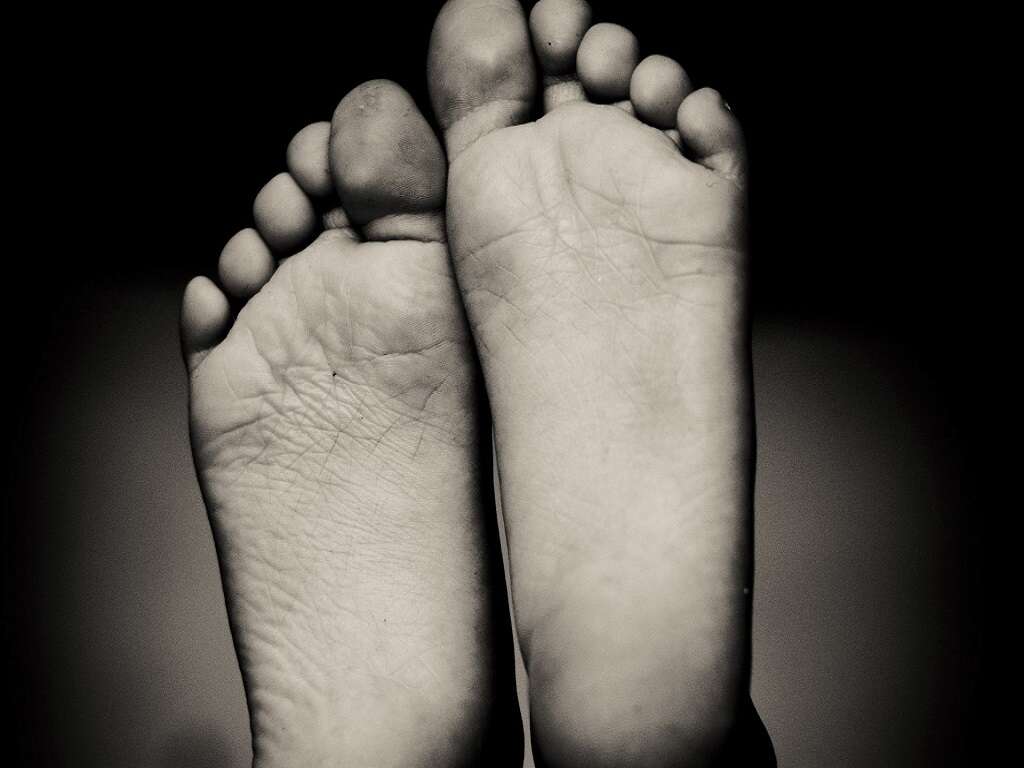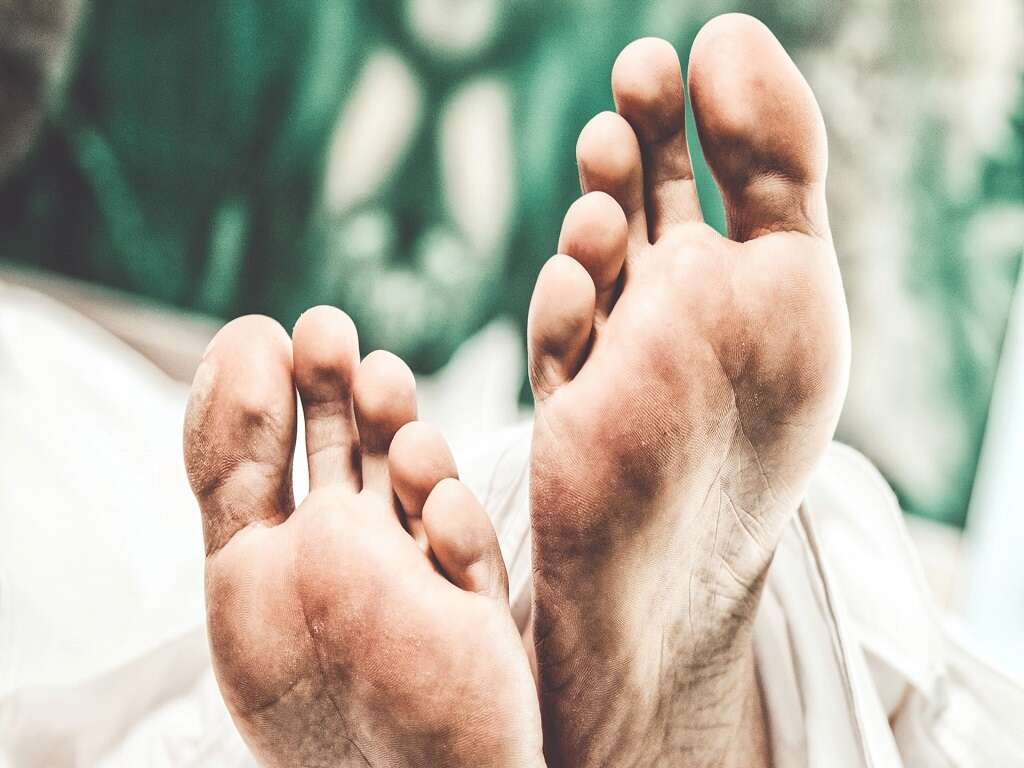10 Swollen Feet Remedies
Swelling of the feet is a fairly common problem, especially among the older population. It may even affect the legs, calves, and eventually the thighs.
There are many causes of swollen feet. In painful swelling, it can range from infection, injury, or even something more serious. Swelling of the feet is not a disease but rather, a symptom of an underlying disorder. It is best to seek medical advice from a medical professional if you are experiencing swollen feet as you may have a serious underlying condition. Meanwhile, here are some remedies that may be able to help you with swollen feet.

Swollen Feet Remedy #1: Rest
Since there are many causes for swollen feet, the treatment or remedy for it also depends on the underlying cause. For most, the swelling of the feet and ankles can be reduced just by resting their feet and putting it up. By putting your feet up, there is less gravity pull and it also helps the circulation in the feet back to the heart. It is even more effective if the swollen part is elevated above the level of the heart. This can be done by placing pillows under the heels while the individual is laying down. Use caution and speak with your doctor about using this technique if you have severe swelling/edema due to congestive heart failure.
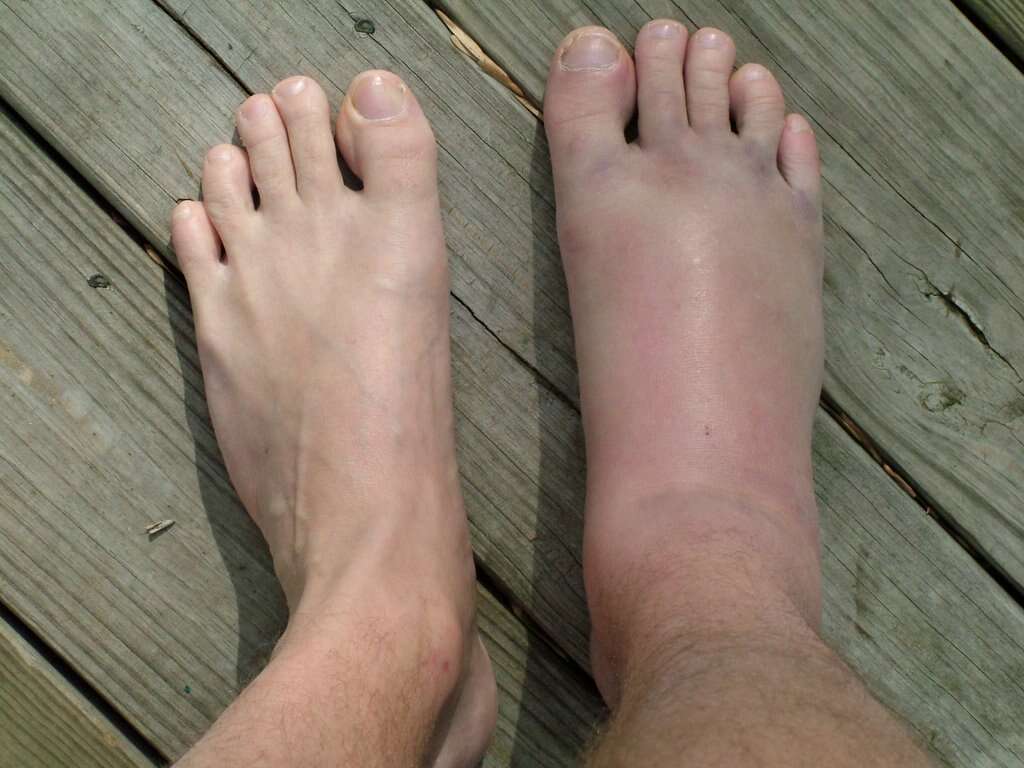
Swollen Feet Remedy #2: Stretching
Sitting for long periods of time can also cause swelling of the feet. Try taking a short walk or moving your legs by extending and flexing it. If you are traveling by plane, there are also specific exercises that you can do to help reduce feet swelling. The guides are sometimes available in the compartment in front of you. You can also contract your calf muscles and by rotating your ankles multiple times every few hours.
There are also some professionals who recommend the wearing of compression stockings. These specialized socks are important for those with varicose veins as the valves in the leg veins no longer work normally. Compression stockings are available in different lengths, sizes, and pressures. It is recommended to speak to a professional when picking out the type of compression stockings to best fit for your needs.

Swollen Feet Remedy #3: Hydrotherapy
Hydrotherapy or therapy using water can be effective to reduce the swelling in your feet. One form of hydrotherapy is deep water therapy where the limb (usually the leg/ankle) that is swollen is submerged into deep water. The pressure from the water onto the limb will help to reduce swelling. Another form of hydrotherapy uses warm and cold water. Cold water causes the blood vessels to constrict while warm water causes blood vessels to dilate.
The vascular system will therefore react to the alternating warm and cold therapies thus helping to mobilize fluids within the effected limb. Generally these are both safe practices, however there are some contraindications. For example, if you have an open wound hydrotherapy should not be used. If you have Raynaud’s disease avoid cold therapy. If the injury is acute (<72 hours old) then only use cold therapy. It is best to speak with a professional to see if this type of therapy is a good fit for you and to get the best protocol of use for your condition.
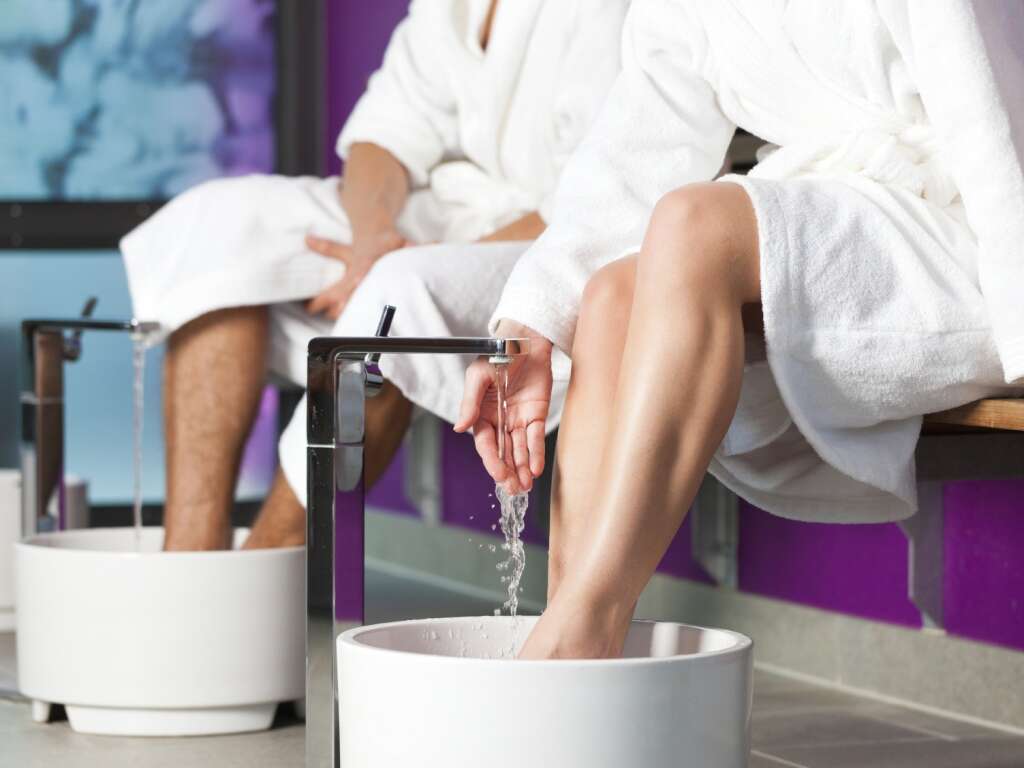
Swollen Feet Remedy #4: Massage
Besides helping you relax, a massage can be extremely effective in reducing the swelling in your feet. Massaging the feet creates pressure that relieves sore muscles and increases the circulation. By increasing the circulation, it therefore encourages excess fluid drainage which leads to decreased swelling. A foot massage can be performed using warm mustard oil, olive oil, lotion, shea butter, or anything that works.
Massage the feet gently for a minimum of 5 minutes in the upward direction to help move the excess fluid towards the heart. Try not to apply too much pressure. This massage can be done several times a day and is best performed during or after a bath. In special cases such as swelling of the feet due to pregnancy, it may be wise to consult a therapist who specializes in prenatal massage.
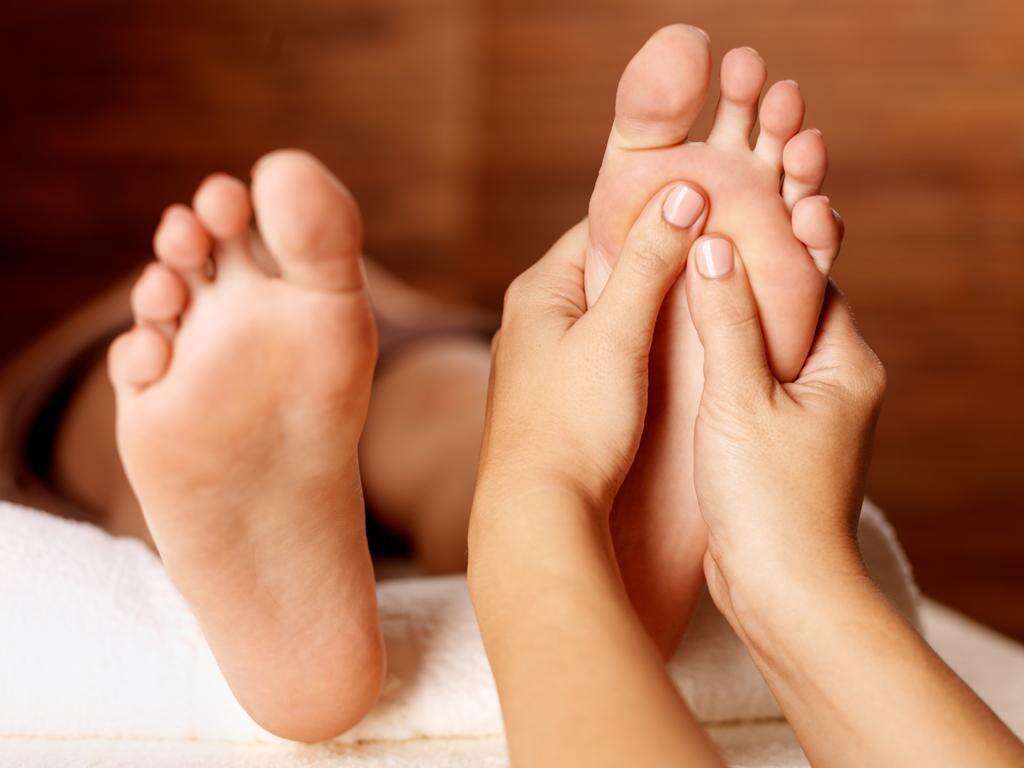
Swollen Feet Remedy #5: Soaking
One of the most effective ways to reduce swelling in the feet is to soak them in Epsom salts as the magnesium sulfate in it is easily absorbed through the skin and improves circulation. This reduces the swelling and can also reduce pain and discomfort if present. Epsom salts are also effective in the relaxation of sore and tired muscles. Another advantage of soaking your feet in Epsom salts is that it helps neutralize foot odor.
To try, fill your foot tub with warm water and mix in approximately half a cup of Epsom salts. Proceed to soak your feet for a minimum of 10 to 15 minutes and repeat this process for up to 3 times a week.
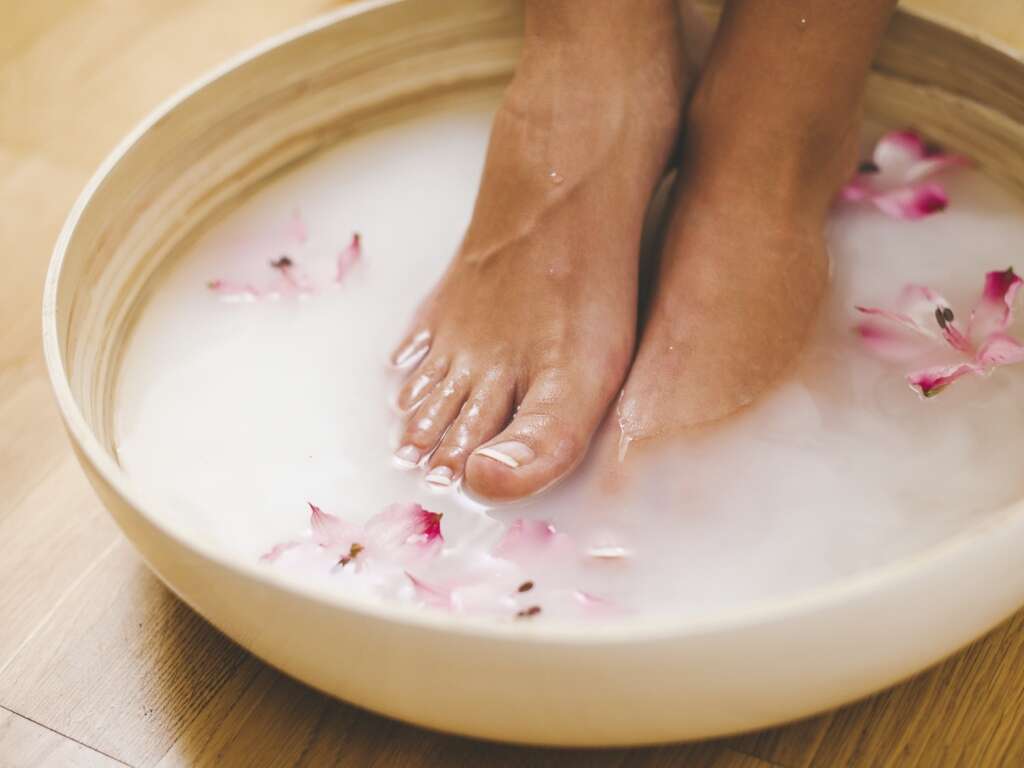
Swollen Feet Remedy #6: Ginger
In homeopathy, some professionals believe that ginger is able to reduce swelling in the feet as it is one of the foods that helps to dilute sodium. It acts as a natural diuretic that helps the excretion of excess fluid. It also has anti-inflammatory properties that further helps to reduce inflammation and hence, swelling.
You can try massaging your swollen feet using ginger oil several times daily or by drinking a few cups of ginger tea everyday. There are also some who prefer to chew on raw ginger slices.

Swollen Feet Remedy #7: Yoga
Yoga practice includes movements that may be suitable for individuals of all ages or health conditions. The postures encourage blood circulation which helps to avoid pooling of blood in the feet and ankles. Inversion postures that involve elevating the feet above the ears also helps alleviate excess pressure and swelling on the lower extremities. It is an excellent way to relieve edema (a condition where excess fluid is retained in the feet and ankles).
Since pregnant women are particularly susceptible to edema, yoga is an exceptional method to reduce swelling in the feet and keeping fit. That being said, inversions are typically not used by pregnant women, especially if they were not practicing inversions prior to being pregnant. Before embarking on a new regime, please consult with your doctor to see if it is safe and take a class to learn from a professional!

Swollen Feet Remedy #8: Magnesium
In some cases of painful swollen feet, ankles, or calves, you may want to see your general practitioner to see if magnesium supplements may be able to help. A magnesium deficiency can occasionally contribute to inflammation in the feet or cause edema. Even if you do not have a deficiency, magnesium supplements may still be a good idea as extra magnesium may help relief some symptoms.
The Mayo clinic has also reported that the addition of 200 to 400 mg of magnesium daily can help reduce water retention. However, it should be made aware that magnesium should be avoided in those with heart or kidney disease. Before starting new supplements, remember to consult with your primary care practitioner.
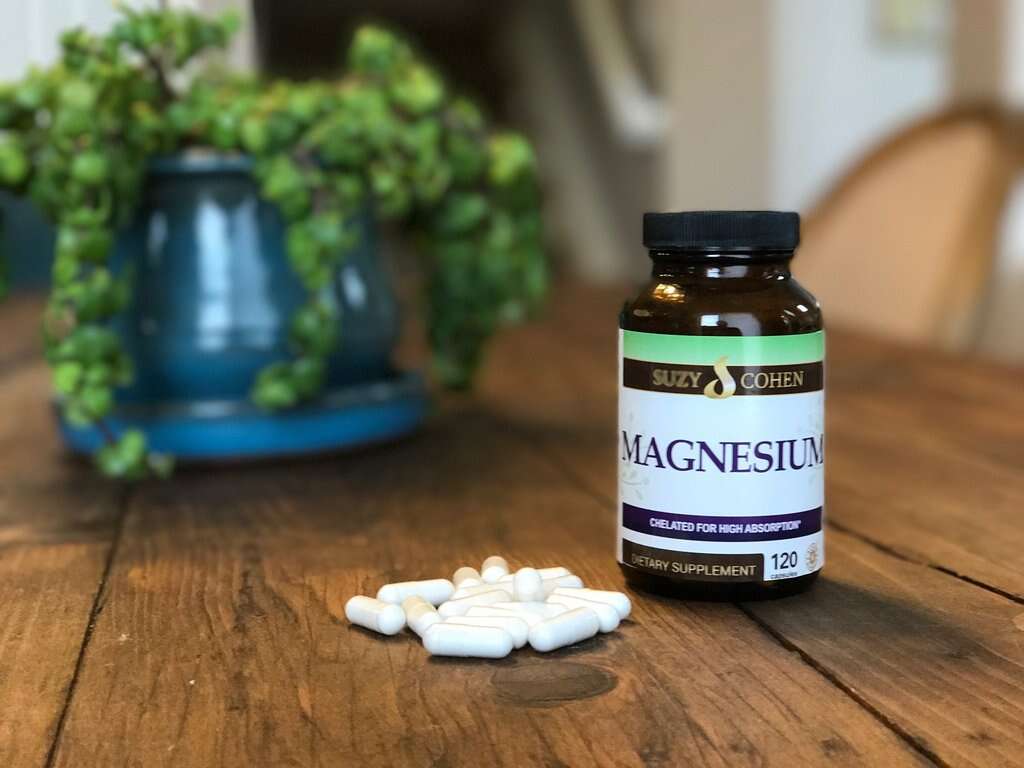
Swollen Feet Remedy #9: Essential Oils
Essential oils to help reduce swelling in the feet is a holistic and homeopathic approach. Homeopathic professionals believe that by adding essential oils with anti-inflammatory properties into your massage oil or bath water, it may be able to help alleviate the pain and swelling in your feet and ankles.
Some of the essential oils that may help are peppermint, eucalyptus, lemon, lavender, and chamomile. The scent can also be calming and relaxing.

Swollen Feet Remedy #10: Diet
Diet is always one of the most important factors in our life. Hence, the saying “you are what you eat” can be very true especially in this case. Salt and caffeine are two of the biggest factors that causes water retention and can greatly contribute to your feet and ankle swelling. Try cutting down on salt intake and limit your caffeine (switch to water instead). Start eating healthier by sticking to low sodium and fresh produce.
Avoid processed and pre-seasoned foods as they can contain a lot of salt without you realizing it. Remember to read the nutrition labels if you cannot avoid processed food. Excessive salt is detrimental to your health as it may lead to high blood pressure and heart disease in certain people. Make the change today!






